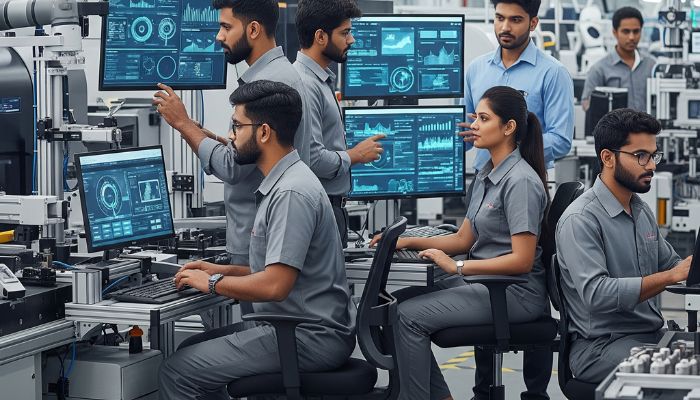Employee engagement is something most companies have been aware of, for quite some time. Engaging millennial employees at work, however, is a lot different from the traditional employee engagement. Old school engagement revolved around team-building exercises like family get togethers and picnics. Millennial employees look for a great deal more than that to remain engaged. Companies need to understand their needs to manage millennial employees. Apart from the usual stuff like good salaries and growth opportunities, millennial employees always look for leaders they can respect, flexible working hours, stress-free and fun filled working environment. They expect that their leaders will acknowledge their hard work and will provide adequate training and growth opportunities.
How do companies go about doing that? They do so by taking care of employees’ personal needs as far as their personal growth is concerned. In today’s high attrition rate environment, companies are stemming the employee turnover rate by having programs that address the professional development of individual employees. As a result, employees are staying longer. , These millennial employees are happy to stay as they were given the opportunities to sample different job profiles and adequate training opportunities.
However, in reality, a mere 13% of Indians feel really engaged with their job according to the State of The Global Workplace report 2017 by Gallup. The most significant reason in Indian companies for employee attrition is that employee engagement is missing – employees do not feel connected to the company psychologically.
You might also be interested to read: Importance of Organizational Culture – The Extent it Colors the Environment for Employees
To engage millennial employees, companies must view workforce engagement as the core of their business strategy. Managing millennials at the workplace has to be considered as the main agenda and not something that can be delegated to HR alone to manage. Employee engagement should be taken as the organizational strategy and should not be conducted in a piece-meal and transactional manner. Companies have to start listening to their millennial employees. It will help them find meaning and attachment to their work. A genuinely caring environment that encourages the right coaching inputs, trust and transparency is the building block of great employee engagement strategy.
In practical terms, it translates into allowing millennial employees opportunities to follow their passions other than work at times. Workspace design according to individual needs does the needful at other times. In other words, millennial employees’ needs vary and they need to be addressed. Myriad needs of the workforce have to be addressed. Engaging millennial employees in a digital workplace means offering employees an agile, responsive and individualized workspace. Engaging millennials at work must take into account the entire life cycle of these employees. It encompasses proper physical workspaces, well-being, flexible work options, encouragement of their passions and suitable growth opportunities.
Unfortunately, very few Indian companies are paying the kind of attention they should be paying to proper employee engagement. Workforce engagement affects the performance of a company. As per The Gallup report, a company becomes 17% more productive and 21% more profitable if its millennial employees and others are engaged. Engaged millennials at work are less likely to change jobs frequently, lowering the attrition rates. Such millennial employees start identifying with the work culture of the organization, in turn becoming brand ambassadors attracting other millennials to the organization, thereby enhancing the prestige and position of the company in the market.
References:
- Keeping millennial employees engaged takes a lot of work. 20th Aug 2018. Shweta Taneja.






